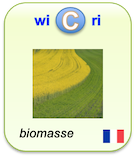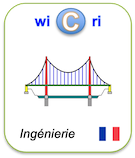Combining product engineering and inherent safety to improve the powder impregnation process
Identifieur interne : 000242 ( Hal/Corpus ); précédent : 000241; suivant : 000243Combining product engineering and inherent safety to improve the powder impregnation process
Auteurs : Karine Groos-Gerardin ; Laurent Perrin ; Véronique Falk ; Olivier DufaudSource :
- Journal of Loss Prevention in the Process Industries [ 0950-4230 ] ; 2015-11.
Abstract
The functionalization of nonwoven textiles can be realized by dry powder impregnation. In order to develop and improve this process, two complementary approaches have been combined: product engineering and inherent safety. It consists in integrating ab-initio consumers' requirements, production constraints as well as safety and environmental considerations. This case study is focused on the proposal, the characterization and the selection of powders mixtures of flame retardants and copolyesters, which will be used to create fire-proofed textiles. The influences of the chemical natures of the flame retardant (e.g. calcium carbonate, aluminium trihydroxide, ammonium polyphosphates), their respective concentrations, particle diameters and the addition of silica to flame retardant/polymer mixtures on their minimum ignition energy has been investigated. It has been determined that ammonium polyphosphates are far more efficient than other flame-retardants and that a minimum of 20%wt concentration is needed to generate a powder mixture that will be almost insensitive to ignition by an electrostatic source. Modifying the particle size distribution and introducing glidants play also a significant role on flame retardant/polymer interactions, on powder dispersibility and has a strong impact on the minimum ignition energy. Finally, the formulations which have been selected fulfill the requirements for fire resistance, flowability, prevention of dust explosion; they are non-toxic, environmentally friendly and their cost is reduced.
Url:
DOI: 10.1016/j.jlp.2015.08.001
Links to Exploration step
Hal:hal-01264853Le document en format XML
<record><TEI><teiHeader><fileDesc><titleStmt><title xml:lang="en">Combining product engineering and inherent safety to improve the powder impregnation process</title><author><name sortKey="Groos Gerardin, Karine" sort="Groos Gerardin, Karine" uniqKey="Groos Gerardin K" first="Karine" last="Groos-Gerardin">Karine Groos-Gerardin</name></author><author><name sortKey="Perrin, Laurent" sort="Perrin, Laurent" uniqKey="Perrin L" first="Laurent" last="Perrin">Laurent Perrin</name><affiliation><hal:affiliation type="laboratory" xml:id="struct-211875" status="VALID"><idno type="IdRef">153068876</idno><idno type="RNSR">201320573K</idno><idno type="IdUnivLorraine">[UL]RQC--</idno><orgName>Laboratoire Réactions et Génie des Procédés</orgName><orgName type="acronym">LRGP</orgName><date type="start">2013-01-01</date><desc><address><addrLine>Université de Lorraine - ENSIC, 1 rue de Grandville BP 20451, 54001 Nancy Cedex</addrLine><country key="FR"></country></address><ref type="url">http://lrgp.univ-lorraine.fr/</ref></desc><listRelation><relation active="#struct-413289" type="direct"></relation><relation name="UMR7274" active="#struct-441569" type="direct"></relation></listRelation><tutelles><tutelle active="#struct-413289" type="direct"><org type="institution" xml:id="struct-413289" status="VALID"><idno type="IdRef">157040569</idno><idno type="IdUnivLorraine">[UL]100--</idno><orgName>Université de Lorraine</orgName><orgName type="acronym">UL</orgName><date type="start">2012-01-01</date><desc><address><addrLine>34 cours Léopold - CS 25233 - 54052 Nancy cedex</addrLine><country key="FR"></country></address><ref type="url">http://www.univ-lorraine.fr/</ref></desc></org></tutelle><tutelle name="UMR7274" active="#struct-441569" type="direct"><org type="institution" xml:id="struct-441569" status="VALID"><idno type="ISNI">0000000122597504</idno><idno type="IdRef">02636817X</idno><orgName>Centre National de la Recherche Scientifique</orgName><orgName type="acronym">CNRS</orgName><date type="start">1939-10-19</date><desc><address><country key="FR"></country></address><ref type="url">http://www.cnrs.fr/</ref></desc></org></tutelle></tutelles></hal:affiliation></affiliation></author><author><name sortKey="Falk, Veronique" sort="Falk, Veronique" uniqKey="Falk V" first="Véronique" last="Falk">Véronique Falk</name><affiliation><hal:affiliation type="laboratory" xml:id="struct-211875" status="VALID"><idno type="IdRef">153068876</idno><idno type="RNSR">201320573K</idno><idno type="IdUnivLorraine">[UL]RQC--</idno><orgName>Laboratoire Réactions et Génie des Procédés</orgName><orgName type="acronym">LRGP</orgName><date type="start">2013-01-01</date><desc><address><addrLine>Université de Lorraine - ENSIC, 1 rue de Grandville BP 20451, 54001 Nancy Cedex</addrLine><country key="FR"></country></address><ref type="url">http://lrgp.univ-lorraine.fr/</ref></desc><listRelation><relation active="#struct-413289" type="direct"></relation><relation name="UMR7274" active="#struct-441569" type="direct"></relation></listRelation><tutelles><tutelle active="#struct-413289" type="direct"><org type="institution" xml:id="struct-413289" status="VALID"><idno type="IdRef">157040569</idno><idno type="IdUnivLorraine">[UL]100--</idno><orgName>Université de Lorraine</orgName><orgName type="acronym">UL</orgName><date type="start">2012-01-01</date><desc><address><addrLine>34 cours Léopold - CS 25233 - 54052 Nancy cedex</addrLine><country key="FR"></country></address><ref type="url">http://www.univ-lorraine.fr/</ref></desc></org></tutelle><tutelle name="UMR7274" active="#struct-441569" type="direct"><org type="institution" xml:id="struct-441569" status="VALID"><idno type="ISNI">0000000122597504</idno><idno type="IdRef">02636817X</idno><orgName>Centre National de la Recherche Scientifique</orgName><orgName type="acronym">CNRS</orgName><date type="start">1939-10-19</date><desc><address><country key="FR"></country></address><ref type="url">http://www.cnrs.fr/</ref></desc></org></tutelle></tutelles></hal:affiliation></affiliation></author><author><name sortKey="Dufaud, Olivier" sort="Dufaud, Olivier" uniqKey="Dufaud O" first="Olivier" last="Dufaud">Olivier Dufaud</name><affiliation><hal:affiliation type="laboratory" xml:id="struct-211875" status="VALID"><idno type="IdRef">153068876</idno><idno type="RNSR">201320573K</idno><idno type="IdUnivLorraine">[UL]RQC--</idno><orgName>Laboratoire Réactions et Génie des Procédés</orgName><orgName type="acronym">LRGP</orgName><date type="start">2013-01-01</date><desc><address><addrLine>Université de Lorraine - ENSIC, 1 rue de Grandville BP 20451, 54001 Nancy Cedex</addrLine><country key="FR"></country></address><ref type="url">http://lrgp.univ-lorraine.fr/</ref></desc><listRelation><relation active="#struct-413289" type="direct"></relation><relation name="UMR7274" active="#struct-441569" type="direct"></relation></listRelation><tutelles><tutelle active="#struct-413289" type="direct"><org type="institution" xml:id="struct-413289" status="VALID"><idno type="IdRef">157040569</idno><idno type="IdUnivLorraine">[UL]100--</idno><orgName>Université de Lorraine</orgName><orgName type="acronym">UL</orgName><date type="start">2012-01-01</date><desc><address><addrLine>34 cours Léopold - CS 25233 - 54052 Nancy cedex</addrLine><country key="FR"></country></address><ref type="url">http://www.univ-lorraine.fr/</ref></desc></org></tutelle><tutelle name="UMR7274" active="#struct-441569" type="direct"><org type="institution" xml:id="struct-441569" status="VALID"><idno type="ISNI">0000000122597504</idno><idno type="IdRef">02636817X</idno><orgName>Centre National de la Recherche Scientifique</orgName><orgName type="acronym">CNRS</orgName><date type="start">1939-10-19</date><desc><address><country key="FR"></country></address><ref type="url">http://www.cnrs.fr/</ref></desc></org></tutelle></tutelles></hal:affiliation></affiliation></author></titleStmt><publicationStmt><idno type="wicri:source">HAL</idno><idno type="RBID">Hal:hal-01264853</idno><idno type="halId">hal-01264853</idno><idno type="halUri">https://hal.univ-lorraine.fr/hal-01264853</idno><idno type="url">https://hal.univ-lorraine.fr/hal-01264853</idno><idno type="doi">10.1016/j.jlp.2015.08.001</idno><date when="2015-11">2015-11</date><idno type="wicri:Area/Hal/Corpus">000242</idno></publicationStmt><sourceDesc><biblStruct><analytic><title xml:lang="en">Combining product engineering and inherent safety to improve the powder impregnation process</title><author><name sortKey="Groos Gerardin, Karine" sort="Groos Gerardin, Karine" uniqKey="Groos Gerardin K" first="Karine" last="Groos-Gerardin">Karine Groos-Gerardin</name></author><author><name sortKey="Perrin, Laurent" sort="Perrin, Laurent" uniqKey="Perrin L" first="Laurent" last="Perrin">Laurent Perrin</name><affiliation><hal:affiliation type="laboratory" xml:id="struct-211875" status="VALID"><idno type="IdRef">153068876</idno><idno type="RNSR">201320573K</idno><idno type="IdUnivLorraine">[UL]RQC--</idno><orgName>Laboratoire Réactions et Génie des Procédés</orgName><orgName type="acronym">LRGP</orgName><date type="start">2013-01-01</date><desc><address><addrLine>Université de Lorraine - ENSIC, 1 rue de Grandville BP 20451, 54001 Nancy Cedex</addrLine><country key="FR"></country></address><ref type="url">http://lrgp.univ-lorraine.fr/</ref></desc><listRelation><relation active="#struct-413289" type="direct"></relation><relation name="UMR7274" active="#struct-441569" type="direct"></relation></listRelation><tutelles><tutelle active="#struct-413289" type="direct"><org type="institution" xml:id="struct-413289" status="VALID"><idno type="IdRef">157040569</idno><idno type="IdUnivLorraine">[UL]100--</idno><orgName>Université de Lorraine</orgName><orgName type="acronym">UL</orgName><date type="start">2012-01-01</date><desc><address><addrLine>34 cours Léopold - CS 25233 - 54052 Nancy cedex</addrLine><country key="FR"></country></address><ref type="url">http://www.univ-lorraine.fr/</ref></desc></org></tutelle><tutelle name="UMR7274" active="#struct-441569" type="direct"><org type="institution" xml:id="struct-441569" status="VALID"><idno type="ISNI">0000000122597504</idno><idno type="IdRef">02636817X</idno><orgName>Centre National de la Recherche Scientifique</orgName><orgName type="acronym">CNRS</orgName><date type="start">1939-10-19</date><desc><address><country key="FR"></country></address><ref type="url">http://www.cnrs.fr/</ref></desc></org></tutelle></tutelles></hal:affiliation></affiliation></author><author><name sortKey="Falk, Veronique" sort="Falk, Veronique" uniqKey="Falk V" first="Véronique" last="Falk">Véronique Falk</name><affiliation><hal:affiliation type="laboratory" xml:id="struct-211875" status="VALID"><idno type="IdRef">153068876</idno><idno type="RNSR">201320573K</idno><idno type="IdUnivLorraine">[UL]RQC--</idno><orgName>Laboratoire Réactions et Génie des Procédés</orgName><orgName type="acronym">LRGP</orgName><date type="start">2013-01-01</date><desc><address><addrLine>Université de Lorraine - ENSIC, 1 rue de Grandville BP 20451, 54001 Nancy Cedex</addrLine><country key="FR"></country></address><ref type="url">http://lrgp.univ-lorraine.fr/</ref></desc><listRelation><relation active="#struct-413289" type="direct"></relation><relation name="UMR7274" active="#struct-441569" type="direct"></relation></listRelation><tutelles><tutelle active="#struct-413289" type="direct"><org type="institution" xml:id="struct-413289" status="VALID"><idno type="IdRef">157040569</idno><idno type="IdUnivLorraine">[UL]100--</idno><orgName>Université de Lorraine</orgName><orgName type="acronym">UL</orgName><date type="start">2012-01-01</date><desc><address><addrLine>34 cours Léopold - CS 25233 - 54052 Nancy cedex</addrLine><country key="FR"></country></address><ref type="url">http://www.univ-lorraine.fr/</ref></desc></org></tutelle><tutelle name="UMR7274" active="#struct-441569" type="direct"><org type="institution" xml:id="struct-441569" status="VALID"><idno type="ISNI">0000000122597504</idno><idno type="IdRef">02636817X</idno><orgName>Centre National de la Recherche Scientifique</orgName><orgName type="acronym">CNRS</orgName><date type="start">1939-10-19</date><desc><address><country key="FR"></country></address><ref type="url">http://www.cnrs.fr/</ref></desc></org></tutelle></tutelles></hal:affiliation></affiliation></author><author><name sortKey="Dufaud, Olivier" sort="Dufaud, Olivier" uniqKey="Dufaud O" first="Olivier" last="Dufaud">Olivier Dufaud</name><affiliation><hal:affiliation type="laboratory" xml:id="struct-211875" status="VALID"><idno type="IdRef">153068876</idno><idno type="RNSR">201320573K</idno><idno type="IdUnivLorraine">[UL]RQC--</idno><orgName>Laboratoire Réactions et Génie des Procédés</orgName><orgName type="acronym">LRGP</orgName><date type="start">2013-01-01</date><desc><address><addrLine>Université de Lorraine - ENSIC, 1 rue de Grandville BP 20451, 54001 Nancy Cedex</addrLine><country key="FR"></country></address><ref type="url">http://lrgp.univ-lorraine.fr/</ref></desc><listRelation><relation active="#struct-413289" type="direct"></relation><relation name="UMR7274" active="#struct-441569" type="direct"></relation></listRelation><tutelles><tutelle active="#struct-413289" type="direct"><org type="institution" xml:id="struct-413289" status="VALID"><idno type="IdRef">157040569</idno><idno type="IdUnivLorraine">[UL]100--</idno><orgName>Université de Lorraine</orgName><orgName type="acronym">UL</orgName><date type="start">2012-01-01</date><desc><address><addrLine>34 cours Léopold - CS 25233 - 54052 Nancy cedex</addrLine><country key="FR"></country></address><ref type="url">http://www.univ-lorraine.fr/</ref></desc></org></tutelle><tutelle name="UMR7274" active="#struct-441569" type="direct"><org type="institution" xml:id="struct-441569" status="VALID"><idno type="ISNI">0000000122597504</idno><idno type="IdRef">02636817X</idno><orgName>Centre National de la Recherche Scientifique</orgName><orgName type="acronym">CNRS</orgName><date type="start">1939-10-19</date><desc><address><country key="FR"></country></address><ref type="url">http://www.cnrs.fr/</ref></desc></org></tutelle></tutelles></hal:affiliation></affiliation></author></analytic><idno type="DOI">10.1016/j.jlp.2015.08.001</idno><series><title level="j">Journal of Loss Prevention in the Process Industries</title><idno type="ISSN">0950-4230</idno><imprint><date type="datePub">2015-11</date></imprint></series></biblStruct></sourceDesc></fileDesc><profileDesc><textClass></textClass></profileDesc></teiHeader><front><div type="abstract" xml:lang="en">The functionalization of nonwoven textiles can be realized by dry powder impregnation. In order to develop and improve this process, two complementary approaches have been combined: product engineering and inherent safety. It consists in integrating ab-initio consumers' requirements, production constraints as well as safety and environmental considerations. This case study is focused on the proposal, the characterization and the selection of powders mixtures of flame retardants and copolyesters, which will be used to create fire-proofed textiles. The influences of the chemical natures of the flame retardant (e.g. calcium carbonate, aluminium trihydroxide, ammonium polyphosphates), their respective concentrations, particle diameters and the addition of silica to flame retardant/polymer mixtures on their minimum ignition energy has been investigated. It has been determined that ammonium polyphosphates are far more efficient than other flame-retardants and that a minimum of 20%wt concentration is needed to generate a powder mixture that will be almost insensitive to ignition by an electrostatic source. Modifying the particle size distribution and introducing glidants play also a significant role on flame retardant/polymer interactions, on powder dispersibility and has a strong impact on the minimum ignition energy. Finally, the formulations which have been selected fulfill the requirements for fire resistance, flowability, prevention of dust explosion; they are non-toxic, environmentally friendly and their cost is reduced.</div></front></TEI><hal api="V3"><titleStmt><title xml:lang="en">Combining product engineering and inherent safety to improve the powder impregnation process</title><author role="aut"><persName><forename type="first">Karine</forename><surname>Groos-Gerardin</surname></persName><email></email><idno type="halauthor">1284018</idno></author><author role="aut"><persName><forename type="first">Laurent</forename><surname>Perrin</surname></persName><email></email><idno type="halauthor">89656</idno><affiliation ref="#struct-211875"></affiliation></author><author role="aut"><persName><forename type="first">Véronique</forename><surname>Falk</surname></persName><email>veronique.falk@univ-lorraine.fr</email><idno type="halauthor">807631</idno><affiliation ref="#struct-211875"></affiliation></author><author role="aut"><persName><forename type="first">Olivier</forename><surname>Dufaud</surname></persName><email></email><idno type="halauthor">999776</idno><affiliation ref="#struct-211875"></affiliation></author><editor role="depositor"><persName><forename>LRGP</forename><surname>UL</surname></persName><email>ddoc-appuirecherche-lrgp@univ-lorraine.fr</email></editor></titleStmt><editionStmt><edition n="v1" type="current"><date type="whenSubmitted">2016-01-29 17:06:07</date><date type="whenModified">2016-05-10 16:53:23</date><date type="whenReleased">2016-01-29 17:06:07</date><date type="whenProduced">2015-11</date></edition><respStmt><resp>contributor</resp><name key="329568"><persName><forename>LRGP</forename><surname>UL</surname></persName><email>ddoc-appuirecherche-lrgp@univ-lorraine.fr</email></name></respStmt></editionStmt><publicationStmt><distributor>CCSD</distributor><idno type="halId">hal-01264853</idno><idno type="halUri">https://hal.univ-lorraine.fr/hal-01264853</idno><idno type="halBibtex">groosgerardin:hal-01264853</idno><idno type="halRefHtml">Journal of Loss Prevention in the Process Industries, Elsevier, 2015, 38, pp.1-10. <10.1016/j.jlp.2015.08.001></idno><idno type="halRef">Journal of Loss Prevention in the Process Industries, Elsevier, 2015, 38, pp.1-10. <10.1016/j.jlp.2015.08.001></idno></publicationStmt><seriesStmt><idno type="stamp" n="UNIV-LORRAINE">Université de Lorraine</idno><idno type="stamp" n="CNRS">CNRS - Centre national de la recherche scientifique</idno><idno type="stamp" n="LRGP-UL">LRGP</idno></seriesStmt><notesStmt><note type="audience" n="2">International</note><note type="popular" n="0">No</note><note type="peer" n="1">Yes</note></notesStmt><sourceDesc><biblStruct><analytic><title xml:lang="en">Combining product engineering and inherent safety to improve the powder impregnation process</title><author role="aut"><persName><forename type="first">Karine</forename><surname>Groos-Gerardin</surname></persName><idno type="halAuthorId">1284018</idno></author><author role="aut"><persName><forename type="first">Laurent</forename><surname>Perrin</surname></persName><idno type="halAuthorId">89656</idno><affiliation ref="#struct-211875"></affiliation></author><author role="aut"><persName><forename type="first">Véronique</forename><surname>Falk</surname></persName><email>veronique.falk@univ-lorraine.fr</email><idno type="halAuthorId">807631</idno><affiliation ref="#struct-211875"></affiliation></author><author role="aut"><persName><forename type="first">Olivier</forename><surname>Dufaud</surname></persName><idno type="halAuthorId">999776</idno><affiliation ref="#struct-211875"></affiliation></author></analytic><monogr><idno type="halJournalId" status="VALID">15706</idno><idno type="issn">0950-4230</idno><title level="j">Journal of Loss Prevention in the Process Industries</title><imprint><publisher>Elsevier</publisher><biblScope unit="volume">38</biblScope><biblScope unit="pp">1-10</biblScope><date type="datePub">2015-11</date></imprint></monogr><idno type="doi">10.1016/j.jlp.2015.08.001</idno></biblStruct></sourceDesc><profileDesc><langUsage><language ident="en">English</language></langUsage><textClass><classCode scheme="halDomain" n="chim">Chemical Sciences</classCode><classCode scheme="halTypology" n="ART">Journal articles</classCode></textClass><abstract xml:lang="en">The functionalization of nonwoven textiles can be realized by dry powder impregnation. In order to develop and improve this process, two complementary approaches have been combined: product engineering and inherent safety. It consists in integrating ab-initio consumers' requirements, production constraints as well as safety and environmental considerations. This case study is focused on the proposal, the characterization and the selection of powders mixtures of flame retardants and copolyesters, which will be used to create fire-proofed textiles. The influences of the chemical natures of the flame retardant (e.g. calcium carbonate, aluminium trihydroxide, ammonium polyphosphates), their respective concentrations, particle diameters and the addition of silica to flame retardant/polymer mixtures on their minimum ignition energy has been investigated. It has been determined that ammonium polyphosphates are far more efficient than other flame-retardants and that a minimum of 20%wt concentration is needed to generate a powder mixture that will be almost insensitive to ignition by an electrostatic source. Modifying the particle size distribution and introducing glidants play also a significant role on flame retardant/polymer interactions, on powder dispersibility and has a strong impact on the minimum ignition energy. Finally, the formulations which have been selected fulfill the requirements for fire resistance, flowability, prevention of dust explosion; they are non-toxic, environmentally friendly and their cost is reduced.</abstract></profileDesc></hal></record>Pour manipuler ce document sous Unix (Dilib)
EXPLOR_STEP=$WICRI_ROOT/Wicri/Lorraine/explor/LrgpV1/Data/Hal/Corpus
HfdSelect -h $EXPLOR_STEP/biblio.hfd -nk 000242 | SxmlIndent | more
Ou
HfdSelect -h $EXPLOR_AREA/Data/Hal/Corpus/biblio.hfd -nk 000242 | SxmlIndent | more
Pour mettre un lien sur cette page dans le réseau Wicri
{{Explor lien
|wiki= Wicri/Lorraine
|area= LrgpV1
|flux= Hal
|étape= Corpus
|type= RBID
|clé= Hal:hal-01264853
|texte= Combining product engineering and inherent safety to improve the powder impregnation process
}}
|
| This area was generated with Dilib version V0.6.32. | |



